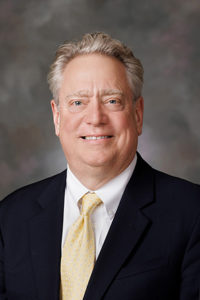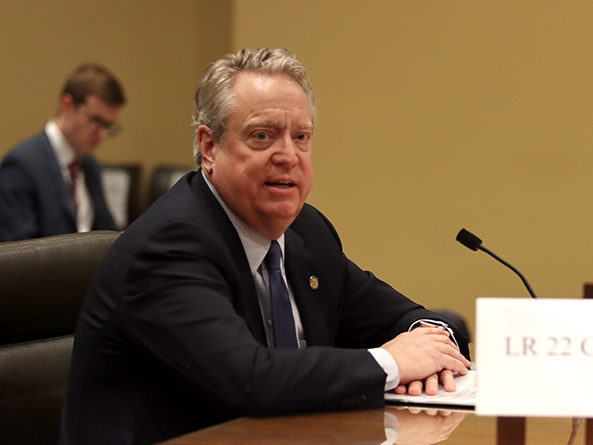Potential third term proposed for legislators
The Executive Board heard testimony March 3 on a proposed constitutional change to legislative term limits.

LR22CA, sponsored by Norfolk Sen. Robert Dover, potentially would extend the current limit of two consecutive four-year terms for state senators to three consecutive four-year terms. If approved by the Legislature, the proposed constitutional change would be put to voters at the November 2024 general election.
Dover said that he favors term limits, but is concerned about the loss of institutional knowledge under the current system. In other states, he said, lawmakers can rotate their service between the two legislative houses when term-limited out of one, thus continuing to use the knowledge and expertise they’ve gained.
That isn’t possible in a one-house system, Dover said.
He noted that 40 out of 49 state senators have signed on to LR22CA, indicating a consensus that the current system needs to be revised.
“The government of Nebraska is a multi-billion-dollar operation that affects many aspects of taxes, business, agriculture, education, health care, insurance, natural resources, etc. within our state,” Dover said. “Having knowledgeable and informed senators who know how to address these issues is of great benefit to the people of Nebraska.”
Barry Kennedy testified in favor of the proposal on behalf of the Nebraska Chamber of Commerce and Industry, the Greater Omaha Chamber and the Lincoln Chamber of Commerce.
He expressed concern about the balance of power between the three branches of state government under the current system. The governor is subject to term-limits, he said, but the executive branch is filled with agency heads and long-time employees with a great deal of experience and institutional knowledge. In addition, he said, judges in Nebraska face no limits on their service.
With so much turnover in the Legislature, many new members also bring in new staff, further weakening the power of the legislative branch, Kennedy said.
Former state senator Al Davis also supported the measure, representing the Nebraska chapter of the Sierra Club and the Nebraska Farmers Union.
New senators spend about half of their first term trying to learn an overwhelming amount of information, he said, including the intricacies of hundreds of cash funds, commissions and committees as well as state and federal rules and regulations.
“Nebraska state government is an incredibly complex organism with multiple moving parts,” Davis said.
Also in support was Jay Ferris, testifying on behalf of the Nebraska Farm Bureau, Nebraska Corn Growers Association, Nebraska Pork Producers Association and Nebraska Soybean Association.
It takes time to develop the relationships and trust necessary to be an effective policymaker, he said, but Nebraska senators automatically are up against a time limit no matter how knowledgeable or effective they are.
“Since 2006 when the current system of two-consecutive terms was implemented, we’ve automatically kicked out very effective state senators every two years,” Ferris said. “In what other profession do we force out our best employees?”
No one testified in opposition to the proposal and the committee took no immediate action on it.


